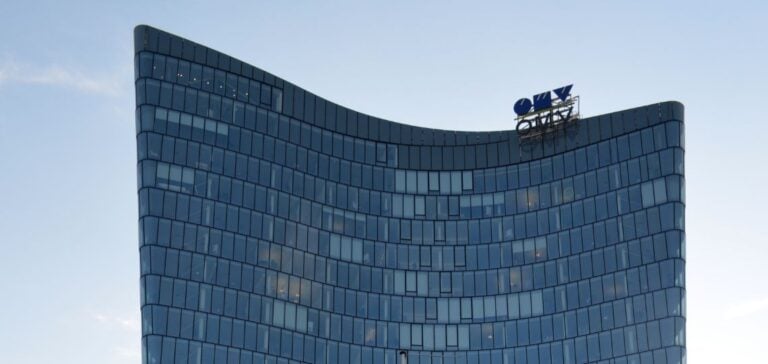The quarterly results of OMV, the Austrian energy group, show resilience in a challenging market. The company posted an adjusted operating profit of 1.05 billion euros, slightly above analysts’ expectations of 1.04 billion euros. Although down 21% from the 1.33 billion euros recorded the previous year, this figure is supported by the performance of OMV’s chemical division, which helps offset losses in the traditional fuel and raw materials segments.
Refining Margins Under Pressure
OMV’s fuels division was impacted by a significant drop in refining margins. The decline in oil prices and challenging market conditions reduced revenues from joint ventures with Abu Dhabi National Oil Company (ADNOC) and the Italian group Eni. In response, OMV adjusted its Brent price forecasts, now ranging from $80 to $85 per barrel for the rest of the year. The European refining margin indicator, a key metric for OMV, was also revised downward from $8 to $7 per barrel, with the European refinery utilization rate now expected to be below 90%.
Chemical Division: Growth Engine
OMV’s chemical division posted an adjusted operating profit of 135 million euros, marking a strong recovery from a loss of 11 million euros in the same period last year. Focusing on materials for infrastructure, automotive, and medical equipment, this division helps diversify OMV’s revenue sources and reduce dependence on fossil fuels.
This strategic positioning aligns with market trends favoring cleaner solutions and offers a sustainable growth potential, particularly relevant in the context of the energy transition.
International Partnerships and Strategic Adjustments
OMV’s results highlight the importance of its partnerships with ADNOC and Eni, although declining oil prices have affected margins. With weakened European demand for refined products, OMV has adjusted its refinery utilization rate. This revision reflects the group’s caution amid uncertain economic prospects and market volatility.
OMV’s strategy to revise its key indicators underscores its commitment to adapt quickly to changes in the fossil fuel market while minimizing financial risks associated with a volatile environment.
Long-Term Prospects
The challenges faced by OMV in its traditional energy activities underline the growing role of its chemical division in its diversification strategy. This approach aligns with new requirements in the energy market, as companies in the sector seek to reduce their carbon footprint and meet sustainability goals. OMV’s future depends on its ability to capitalize on the growth of this division in a context of energy transition.






















